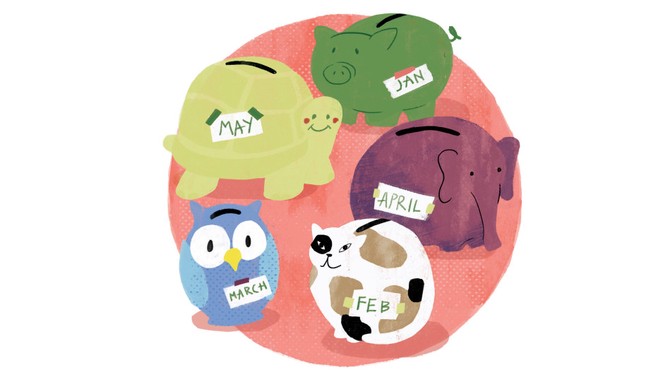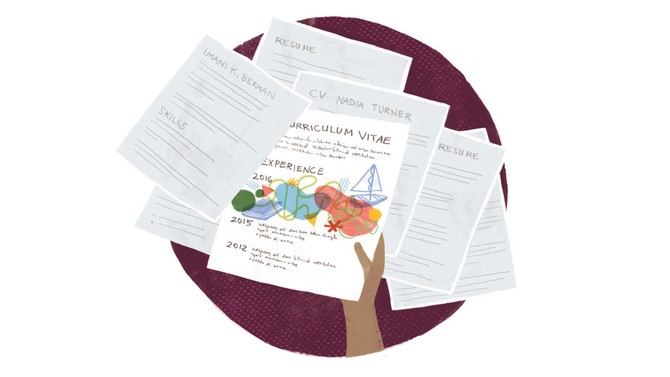5 Things You Need to Know Before Quitting Your Job
Taking time off from work may sound like a pipe dream, but if you want to make that dream come true, here's what you need to know.
By Farnoosh Torabi

Photo: Fly_dragonfly/istock
Kristen Field was clocking in 12-hour days at a nonprofit when her father died and she realized she needed a change, fast. “Losing my dad woke me up to the value of the time we have,” she says. With six months of expenses saved, she quit her job and explored eight countries, mainly staying at inexpensive hotels and with friends; all told, she took about a year off before returning to full-time work.
It may be hard to fathom, especially at this tumultuous cultural moment, but many women are ditching their 9-to-5 to find something more fulfilling: Nearly three in ten highly qualified women report that they’ve quit their job to take a short break at some point in their career. True, it’s a risk. (These days, it takes the unemployed roughly six to seven months to land a new job.) Yet sometimes the rewards are worth it. Intrigued? Consider the following:
It may be hard to fathom, especially at this tumultuous cultural moment, but many women are ditching their 9-to-5 to find something more fulfilling: Nearly three in ten highly qualified women report that they’ve quit their job to take a short break at some point in their career. True, it’s a risk. (These days, it takes the unemployed roughly six to seven months to land a new job.) Yet sometimes the rewards are worth it. Intrigued? Consider the following:

Illustration: Sari Cohen
Can I Afford It?
You can't predict your financial future, but you can minimize your economic burdens. "Focus on what's in your control—your spending and your safety net," says Manisha Thakor, director of wealth strategies for women at the BAM Alliance, a community of wealth management advisers. Analyze your monthly expenses to see where you can cut back. Living frugally while saving up for your leap is great practice for the more modest lifestyle you'll likely have when you're not working. Ideally, you should be able to afford the basics without relying on credit cards or falling behind on bills.
Before you quit, make sure you're nodding yes to these statements:
Before you quit, make sure you're nodding yes to these statements:
- I have enough to cover at least six months of living expenses.
- I’m willing to give up extras for a while: cable, green juices, massages.
- I can make some money in a pinch, either through side jobs or online (pet sitting, Airbnb-ing a second bedroom, etc.).
- My debt is under control.

Photo: courtneyk/istock
What About Health Insurance?
It's imperative. "Even if you're in great health, an unexpected illness can saddle you with hefty medical bills," says Thakor. If applicable, COBRA lets you pay to stay on the plan your previous employer provided for up to 18 months. (Remember: It'll likely be pricier than what you've been paying since your company won't be covering a percentage of the premium). Alternatively, shop for a plan via your state's Marketplace or HealthCare.gov (while you still can), or visit eHealth.com and HealthInsurance.com to explore plans from private insurance brokers.

Illustration: Sari Cohen
How Do I Explain the Gap in My Résumé?
Pursuing long-postponed goals can be great for your psyche; in some cases, it can also be helpful during job interviews. "Employers want to hear that you engaged in experiences that expanded your skill set," says career coach Kathy Caprino. "When I was an executive recruiter," says Erica Keswin, who's worked with J.P. Morgan, Starbucks and the NFL, "I was always interested in bold people who took risks. Taking time to find your purpose can pay off."

Photo: lechatnoir/istock
There's Always a Sabbatical!
If you need a break but quitting isn't feasible, consider something less final. Twenty-eight percent of companies offer at least some employees paid or unpaid time off, with a guaranteed return to the same or a comparable position.

Illustration: Sari Cohen
My Exit Strategy
"I stockpiled savings and earn side income from freelance work so my husband and I can sail for a year on our boat."
—Melody DiCroce, 41, St. Petersburg, Florida
"I sold almost all my possessions and lived for free in a dorm at the University of Mississippi, where I wrote most of my first book."
—Suzanne Kingsbury, 47, Guilford, Connecticut
"After not taking a vacation for five years, I cashed out my vacation and comp days and never went back. Now I run my own PR agency."
—Amy Prenner, 44, Los Angeles
Farnoosh Torabi is a personal finance expert, the author of When She Makes More, and the host of CNBC's Follow the Leader and the award-winning podcast So Money.
Want more stories like this delivered to your inbox? Sign up for the Oprah.com Money Newsletter!
—Melody DiCroce, 41, St. Petersburg, Florida
"I sold almost all my possessions and lived for free in a dorm at the University of Mississippi, where I wrote most of my first book."
—Suzanne Kingsbury, 47, Guilford, Connecticut
"After not taking a vacation for five years, I cashed out my vacation and comp days and never went back. Now I run my own PR agency."
—Amy Prenner, 44, Los Angeles
Farnoosh Torabi is a personal finance expert, the author of When She Makes More, and the host of CNBC's Follow the Leader and the award-winning podcast So Money.
Want more stories like this delivered to your inbox? Sign up for the Oprah.com Money Newsletter!
From the April 2017 issue of O, The Oprah Magazine

